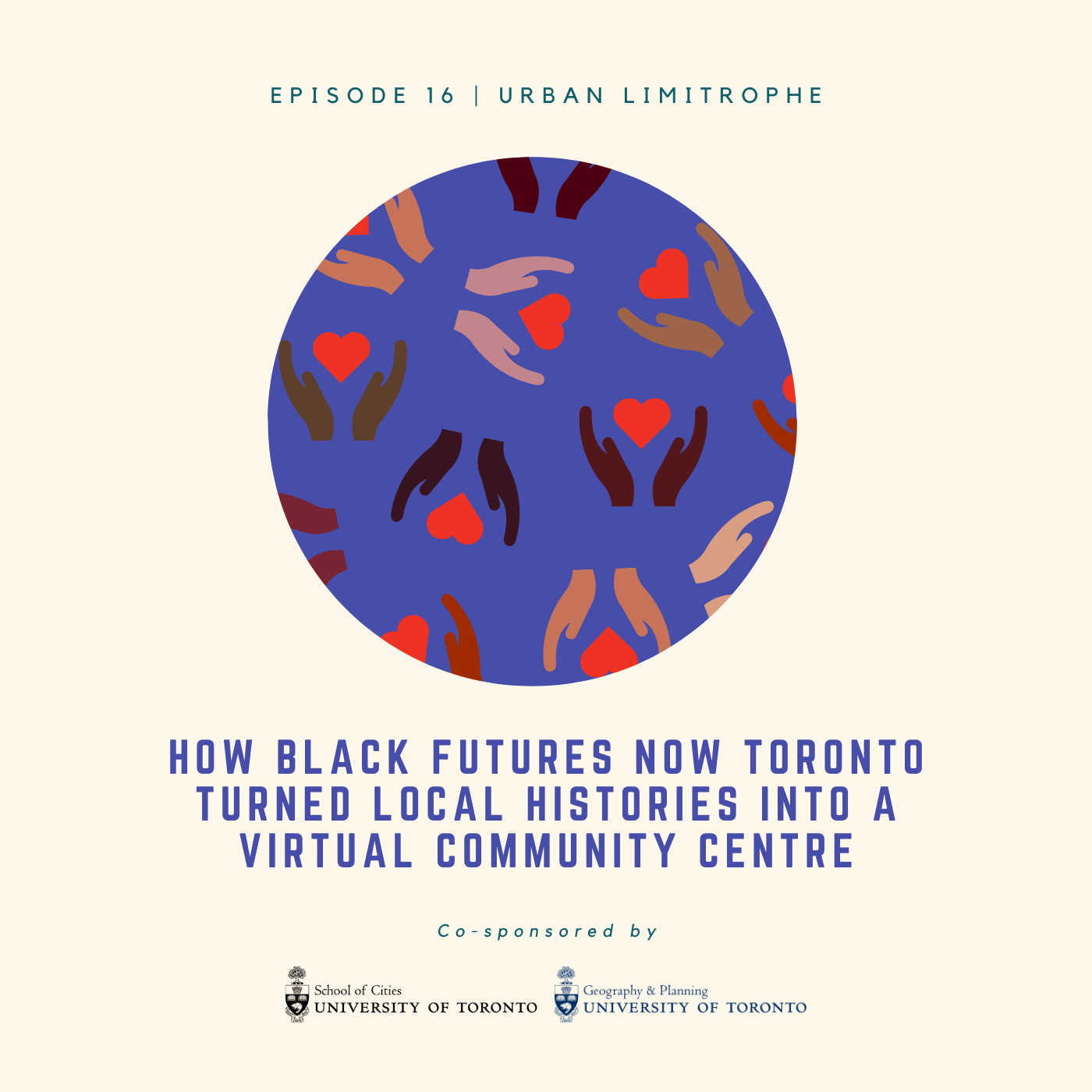In this episode, I chat with Adwoa Afful, the founder of Black Futures Now Toronto (BFN TO). BFN TO is a collective that uses a mixture of storytelling, radical mapping, and a whole lot of creative talent, to develop a number of interactive ways of archiving, experiencing, and celebrating overlooked Black histories and building community both online and offline. During our talk, we explore their innovative Mapping Black Futures (MBF) story mapping project, and how in collaboration with Black nonbinary youth and women from across the Greater Toronto Area, they built a virtual community centre that highlights Black histories and geographies.
In this episode, you'll learn about:
- why it's important to map Black histories and Black geographies,
- what is counter/radical mapping and how it can be used as a tool for community building,
- how Black Futures Now Toronto developed their virtual community centre,
- the youth responsible for creating the content for the Mapping Black Futures project,
- and much more!
Powered by RedCircle
Guest: Adwoa Afful, Founder
Adwoa Afful is the founder of Black Futures Now Toronto (BFN TO), the Project Manager for the Mapping Black Futures Project, and an Executive Producer of "'Dis Place," podcast. She has a background in urban planning, and founded BFN TO to create intergenerational spaces where Black people from across the GTA interested and engaged in community building may share and create strategies for doing with each other.
- Website: www.blackfuturesnow.to/
- Twitter: @BlackFuturesNow
- Instagram: @bfntoronto
- bfntoronto[at]gmail.com
Timestamps
- 03:39 | An introduction to Adwoa and Black Futures Now Toronto
- 07:53 | What is the Mapping Black Futures Project and what inspired you to start this?
- 13:54 | Can you walk us through the process of creating the Mapping Black Futures Project and collecting the different stories?
- 18:28 | What are some of the highlights from the stories shared?
- 24:27 | What has been the response from the community ?
- 29:28 | What is radical mapping and why is mapping, archiving, and curating the stories and places that hold such meaning and memories for the Black community (particularly Black nonbinary youth and women) so important?
- 35:11 | What kind of supports (i.e. policies, partnerships) do you think cities should offer groups like yourself to help celebrate these lesser-known histories and spaces and support placemaking for diverse communities?
- 40:16 |What’s next for Black Futures Now Toronto?
- 42:18 | How can people get involved or support Black Futures Now Toronto?
Show Notes
- Black Futures Now Toronto
- Mapping Black Futures
- ‘Dis Place Podcast
- Feminist Art Conference Of Toronto
- Queering the Map
- Marvellous Grounds
- Detroit Geographic Expedition
Want to learn more? Check out this episode's references!
- Black Futures Now Toronto. (n.d.). About. Mapping Black Futures. https://mbf.blackfuturesnow.to/about/
- Byard, M. (2022, June 14). Museum makes case to UN committee to designate Africville as an international site of historic memory. Halifax Examiner. https://www.halifaxexaminer.ca/featured/museum-makes-case-to-un-committee-to-designate-africville-as-an-international-site-of-historic-memory/
- Oxford Dictionary. (n.d.). Palimpsest. In Lexico. https://www.lexico.com/en/definition/palimpsest
Acknowledgements
- Editor: Hannah Ahamedi
- Music Producer: Imany Lambropoulos
- Podcast Host and Graphic Designer: Alexandra Lambropoulos
Stay in the loop!
If you would like to be interviewed, have an interesting idea to share for an episode, or have any feedback on the podcast, please send me an email at hello[at]urbanlimitrophe.com.
If you enjoy the show, please share it with your family, friends, optometrist, OB/GYN, naval architect... and leave a review on Apple Podcasts!
Make sure to subscribe to the newsletter and follow the podcast on Instagram to stay in the loop


No comments:
Post a Comment